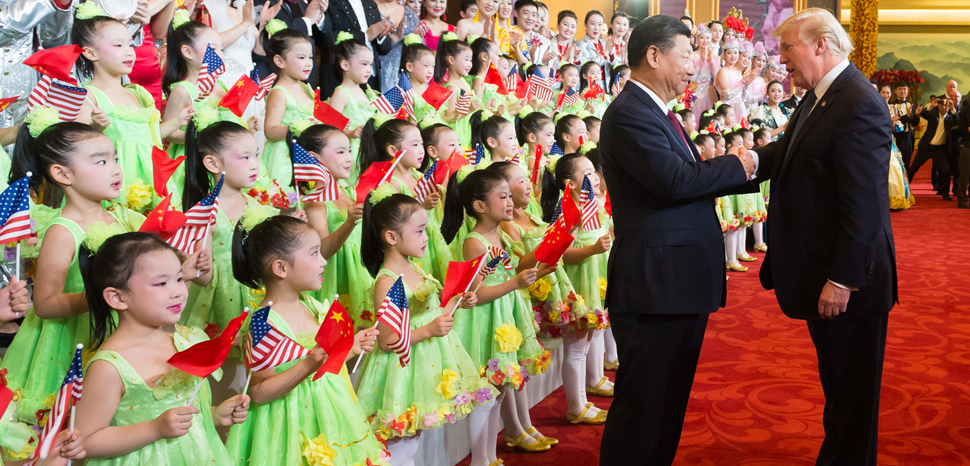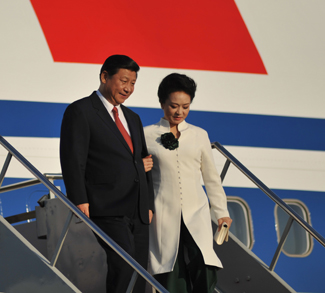The marriage between the United States and the People’s Republic of China is more fragile than at any time since normalization in 1979. Bilateral tensions continue to heighten as disagreements loom over potential trade wars, growing strategic competition, and cyber espionage. Under these challenging circumstances, the re-establishment of a credible strategic partnership is imperative, for the fruits of bilateral coordination do not merely benefit the two regimes, but the global community at large. Nothing brings together rivals more than bigger rivals or shared problems. The U.S. and China’s recent attempts to facilitate North Korea’s denuclearization process offer a rare opportunity for a diplomatic breakthrough. Nevertheless, there will have to be many more successes to come in order to repair this union.
Underlying Issues in US-China Relations
Headlines announcing the advent of a US-China trade war have been circulating for the past few months. Escalating tariffs from both sides can negatively impact the economic development of both countries. For the U.S., the potential trade war comes a delicate time, as the economy has just recovered from the 2008 financial crisis. While the US economy is in pretty good shape, retaliation has the potential to flatline economic growth, sending the country into a recession. For China, repercussions of a trade dispute could be significant as the country faces various other economic headwinds, including a decline in exports, investments, and economic growth compared to last year.
Growing strategic competition. Over the past three decades, China has transformed itself from a self-imposed isolated nation mired in poverty to an emerging superpower. The rise of China has been multidimensional, and its extraordinary economic and military growth and active diplomacy are transforming East Asia. China’s growing power and influence is troubling to the U.S., as it brings with it a decline in Washington’s influence in the region. Outright control of the South and East China Seas is at the forefront of Beijing and Washington’s agenda. Both regimes are competing to strengthen alliances with other Asian nations (i.e. Japan, Taiwan, South Korea) to secure their supremacy within the region. Dominating the oceans provides sovereign power over regional and global trade. Moreover, this struggle for influence goes beyond the Asia-Pacific region, extending to Africa, Latin America, Central Asia, and the Middle East.
Lack of strategic trust. Despite the competitive nature of the countries, the U.S. and China understand that they have the most important bilateral relationship in the world. Yet distrust of each other’s long-term intentions continues to sabotage closer cooperation. The lack of transparency in military plans and doctrines only increases the distrust. While the U.S. still has the largest military in the world, two decades of double-digit growth in China’s defense budget has narrowed the gap. Today’s Chinese military is a professional force that meticulously studies the U.S. military to identify any weakness it can. The U.S. has accused the Chinese government of frequently hacking U.S. military computers, and China has built anti-satellite systems and anti-ship ballistic missiles to counter U.S. strengths in space and on the high seas. China has also accused the U.S. of cyber espionage on significant government and business targets. Cyber operations are instrumental in the strategic competition between Washington and Beijing. A successful attack can include the theft of military and/or trade secrets, or gaining access to highly secured political initiatives or the confidential personal and financial data of government personnel.
Dissimilarities in political systems and values. The vast differences in political systems and values are also an integral component to the heightened mistrust and competition of US-China relations. On one side, China’s newly strengthened Communist Party perceives the U.S. as a crusading liberal democratic hegemon, which aims to force its system and ideology on regimes that it disapproves of, to refashion the entire world in its own image. Notwithstanding, China’s opposition to adopting democratic traditions incline Americans to develop a distaste for the regime’s growth and expansion. As a result of the Chinese Communist Party’s dictatorial powers, average citizens are deprived freedom of speech, freedom of worship, procreative liberty, or voting rights.
The Benefits of Strengthened US-China Relations
It is evident that issues between the U.S. and China are vast and resistant to easy solution. Nonetheless, there is incredible potential for cooperation between the long-standing rivals as long as each other’s core interests and major concerns are respected.
Lessening the number of critical security threats. With these ominous issues accumulating in US-China relations, the shared challenge of dealing with the North Korea threat offers a rare light of optimism. By remaining outcome-focused, the two powers can revolutionize a significant defense problem and achieve a diplomatic success. The denuclearization of North Korea can lead to enhanced US-China security cooperation, rooted in an ongoing process of mutual threat reduction. This process could include curtailing cyber threats and attacks by the Chinese military on U.S. targets; organizing a summit regarding China’s maritime disputes in the South and East China Seas; and managing threats of cyber-terrorism, nuclear proliferation, energy insecurity, and much more.
Rebalancing economic and political ties to ensure stability and mutual prosperity. As China’s economic development slows and uncertainty grips the global economy, US-China economic integration becomes a must. Expanding their Chinese investments will provide American companies an opportunity to increase access to the Chinese marketplace, leading to job creation for hundreds of thousands of nationals. Moreover, in reinforcing economic ties with China, the U.S. stands to achieve far more than it would by instituting new trade barriers. For China, increased U.S. investments will boost employment rates, lead to higher value products, and lower prices for consumers. It would also expand China’s tax base.
Broadening coordination to further global stability and growth. The US-China relationship has a significant impact on the evolution of global governance and prospects for world peace. Strengthening the U.S. and China’s common values can promote greater collaboration within the global community via infrastructure development in developing countries. Building a greater capacity to address the challenges facing global civil society – including education, public health, gender equality, peace and security, and business and trade – is critical to ensuring global stability and growth.
Conclusion
The evolution of US-China relations is not only a defining strategic issue for both countries, but the international community as well. In-depth discussions on the underlying issues is a must to increase shared understanding and consequently build greater overall trust and effectiveness in the relationship. It is essential that US-China relations settle into a “mature marriage,” where mutual respect, joint interests, and an understanding of the negative consequences of an antagonistic relationship bind the two together. In this marriage, divorce is not an option, for it will be detrimental to global stability and growth, both politically and economically.
The opinions, beliefs, and viewpoints expressed by the authors are theirs alone and don’t reflect the official position of Geopoliticalmonitor.com or any other institution.




